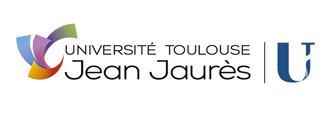Accès direct au contenu | Navigation | Accès directs | Connexion
- Accueil
-
- En bref
- Présentation
- Politique d'établissement
- Actes administratifs
- Organisation
- Eco-responsabilité et responsabilité sociétale
- Politique internationale
- Projets européens et internationaux
- Travailler à l'université
- Egalité et lutte contre les violences sexistes et sexuelles
- Politique handicap
- Sécurité - Vigipirate
- Sites internet de l'UT2J







